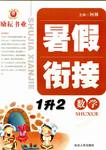题目内容
You can see waste(浪费)everywhere in the school. Some students ask for more food than they can eat and others often forget to turn off the lights when they leave the classroom. They say they can afford these things. But I don’t agree with them.
Waste can bring a lot of problems. Although China is rich in some resources(资源), we are short of others, for example, fresh water. It is reported(据报道) that we will have no coal (煤)or oil to use in 100 years. Think about it. I think we should say no to the students who waste things every day. Everybody should stop wasting as soon as possible.
In our everyday life, we can do many things to stop waste . For example, turn off the water taps when we finish washing, turn off the lights when we leave the classroom and try not to order more food than we need. Little by little, everything will be changed. We can stop waste one day if we do our best to form(养成)the habit of saving.
小题1:From the passage we know that some students often _________ in the school.
小题2:Which is NOT mentioned(提及) in this passage?
小题3:What may happen (发生)in 100 years?
小题4:Which of the following is TRUE?
Waste can bring a lot of problems. Although China is rich in some resources(资源), we are short of others, for example, fresh water. It is reported(据报道) that we will have no coal (煤)or oil to use in 100 years. Think about it. I think we should say no to the students who waste things every day. Everybody should stop wasting as soon as possible.
In our everyday life, we can do many things to stop waste . For example, turn off the water taps when we finish washing, turn off the lights when we leave the classroom and try not to order more food than we need. Little by little, everything will be changed. We can stop waste one day if we do our best to form(养成)the habit of saving.
小题1:From the passage we know that some students often _________ in the school.
| A.eat too much | B.don’t work hard |
| C.waste things | D.throw rubbish everywhere |
| A.Fresh water. | B.Forest. | C.Oil. | D.Coal. |
| A.We may still have enough oil. | B.We may still have enough coal. |
| C.We may have a little oil. | D.We may have no coal or oil to use. |
| A.Waste brings problems. | B.Waste won’t bring problems. |
| C.China is rich in fresh water. | D.Students never waste things. |
小题1:C
小题2:B
小题3:D
小题4:A
试题分析:这篇文章讲述了一些学生在学校里总是浪费东西,这是不对的,我们应该在生活中节约能源,杜绝浪费,养成良好的生活习惯。
小题1:细节题。根据文章You can see waste(浪费)everywhere in the school.可知,一些学生在学校里总是浪费东西。故选C
小题2:细节题。根据文章for example, fresh water. It is reported(据报道) that we will have no coal (煤)or oil to use in 100 years.可知,这篇文章提到了淡水,煤,油,没有提到森林。故选B
小题3:细节题。根据文章It is reported(据报道) that we will have no coal (煤)or oil to use in 100 years.可知,100年后,将没有足够的煤或者油让我们使用。故选D
小题4:细节题。根据文章可知,浪费产生问题。中国很缺乏淡水,学生总是浪费东西。故选A
点评:本文结构非常明了,文意也很好理解,学生在答题中一定要认真细致的作答以求全对。对于此类议论文的文章一定要将文章仔细的阅读完并理解,结合题目通过题目的关键词进行定位,分析好句子的意思,即可得出答案。

练习册系列答案
 励耘书业暑假衔接宁波出版社系列答案
励耘书业暑假衔接宁波出版社系列答案
相关题目